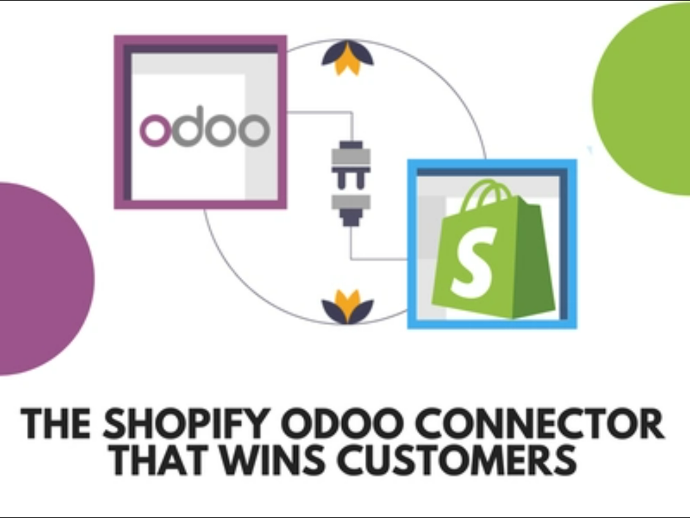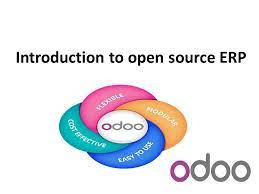Simplify Shopify Accounting with Odoo’s Powerful Tools

Managing finances is one of the most critical aspects of running a successful e-commerce business. For Shopify store owners, efficient accounting processes are key to ensuring profitability, tracking expenses, and maintaining a clear financial picture. However, as the business grows, managing these processes manually can become overwhelming. This is where the integration of Shopify with a powerful ERP system like Odoo can significantly simplify and streamline accounting tasks.
Odoo, an open-source Enterprise Resource Planning (ERP) platform, offers a suite of integrated business applications that include powerful accounting tools designed to meet the unique needs of online stores. By integrating Odoo with Shopify, businesses can automate their financial operations, improve accuracy, and save valuable time that can be directed toward growth. In this article, we will explore how Odoo’s tools simplify Shopify accounting and why businesses should consider integrating these two platforms for optimal financial management.
1. Seamless Integration of Shopify and Odoo
One of the standout benefits of using Odoo for Shopify accounting is its seamless integration capabilities. When Shopify is connected with Odoo, businesses can easily synchronize sales data, customer information, and payment records across both platforms. This eliminates the need for manual data entry, reducing the chances of human errors and streamlining accounting processes.
For instance, every transaction made on your Shopify store will automatically be recorded in Odoo’s accounting module. This automation ensures that your financial records are up to date in real time, allowing you to maintain a clear overview of your income, expenses, and cash flow. Furthermore, you can generate financial reports, such as profit and loss statements or balance sheets, without having to manually reconcile data between different systems.
2. Automated Invoicing and Payment Tracking
Odoo’s accounting module excels in automating invoicing and payment tracking, which is essential for Shopify store owners who process numerous orders daily. When integrated with Shopify, Odoo can automatically generate and send invoices to customers based on their orders. This not only saves time but also ensures that every sale is accounted for correctly.
Additionally, Odoo’s payment tracking feature allows businesses to monitor outstanding payments and follow up with customers who haven’t completed their transactions. This feature is especially useful for businesses that offer multiple payment methods, as Odoo can track payments across different channels, including credit cards, PayPal, and other online payment gateways. With automated invoicing and payment tracking, Shopify store owners can maintain accurate financial records without the need for constant manual intervention.
3. Streamlined Expense Management
Managing expenses is another crucial aspect of Shopify accounting, and Odoo simplifies this process through its comprehensive expense management features. Whether it’s tracking operational costs, vendor payments, or shipping fees, Odoo’s tools allow businesses to categorize and record every expense accurately.
By integrating Shopify with Odoo, businesses can also manage vendor bills and purchase orders within the same platform. For instance, if you purchase inventory or supplies from a vendor, Odoo can automatically create a bill, match it with the corresponding purchase order, and record it in the system. This streamlines the expense management process, ensuring that all expenses are tracked in one place and reducing the likelihood of missed payments or errors.
4. Accurate Tax Calculation and Compliance
Tax management can be a complex and time-consuming task, especially for businesses that sell across different regions or countries with varying tax rates. Odoo’s accounting module simplifies tax calculation and ensures compliance with tax regulations by automating the process.
When integrated with Shopify, Odoo can calculate the appropriate sales tax for each transaction based on the customer’s location. This ensures that the correct amount of tax is applied to each sale, reducing the risk of underpaying or overcharging customers. Furthermore, Odoo provides detailed tax reports, making it easy for businesses to file tax returns and stay compliant with local and international tax regulations.
For Shopify store owners operating in multiple countries, Odoo can also handle multi-currency transactions, ensuring that tax calculations and financial records are accurate regardless of the currency being used.
5. Financial Reporting and Analytics
Having access to comprehensive financial reports is crucial for making informed business decisions, and Odoo’s accounting module excels in providing detailed insights into your business’s financial health. With Odoo’s integration, Shopify store owners can generate various financial reports, including profit and loss statements, balance sheets, cash flow statements, and more.
These reports can be customized to focus on specific aspects of your business, such as sales performance, expense trends, or profitability margins. By analyzing these reports, business owners can identify areas for improvement, optimize their operations, and plan for future growth.
Additionally, Odoo’s dashboard feature allows businesses to visualize key financial metrics in real time. This means that Shopify store owners can monitor their revenue, expenses, and cash flow at a glance, making it easier to track performance and make data-driven decisions.
6. Scalability for Growing Businesses
As your Shopify store grows, so does the complexity of your financial operations. Odoo’s scalable nature makes it an ideal solution for businesses that are expanding and require more robust accounting tools. Whether you are adding new products, entering new markets, or increasing the volume of orders, Odoo’s accounting module can handle the additional complexity without compromising efficiency.
With Odoo, businesses can add new features and functionalities as needed, ensuring that their accounting system evolves with the growth of their Shopify store. This scalability is a significant advantage for businesses that anticipate rapid growth and need a flexible solution that can adapt to changing financial needs.
Conclusion:
In conclusion, integrating Odoo with Shopify offers businesses a powerful solution for simplifying their accounting processes. From automated invoicing and payment tracking to accurate tax calculations and financial reporting, Odoo’s tools provide Shopify store owners with the ability to manage their finances more efficiently and with greater accuracy. The seamless integration between these two platforms not only saves time and reduces errors but also allows businesses to focus on growth and profitability.
When it comes to implementing and optimizing your Odoo-Shopify integration, Index World is the all-in-one solution in the Odoo industry. With years of experience and expertise in Odoo development and integration, Index World can tailor your Odoo platform to meet your specific accounting needs. Whether you are a small business or a large enterprise, Index World’s comprehensive services ensure that your Shopify store’s financial operations run smoothly, allowing you to scale your business with confidence. Let Index World help you simplify your Shopify accounting and unlock the full potential of Odoo for your business.



